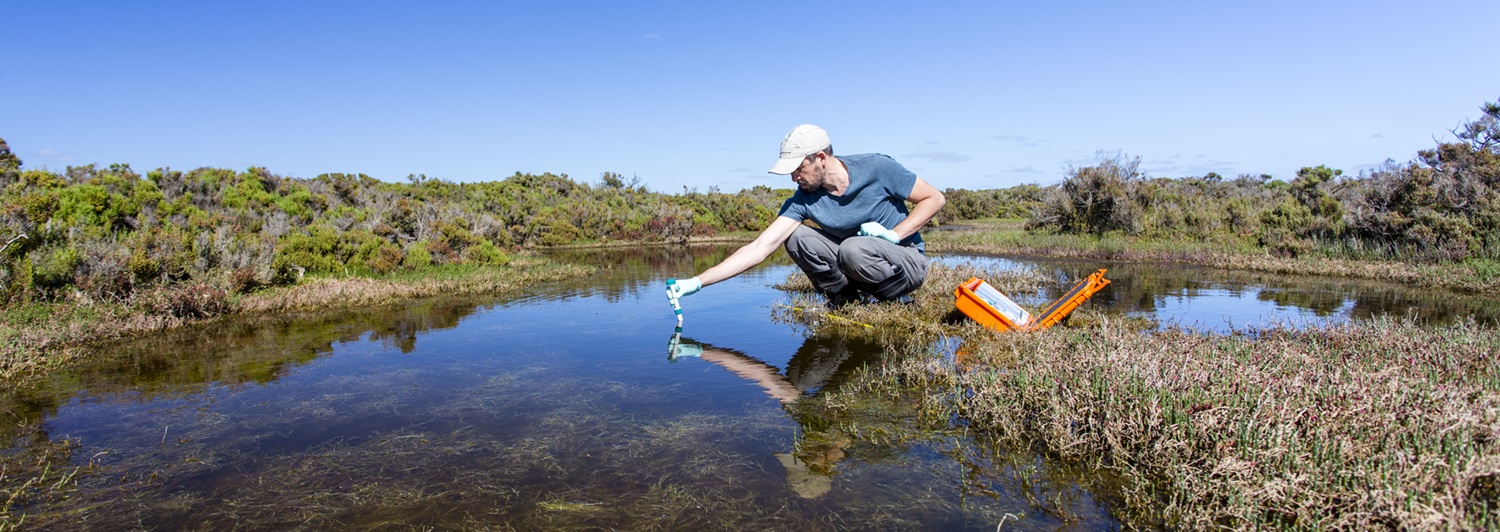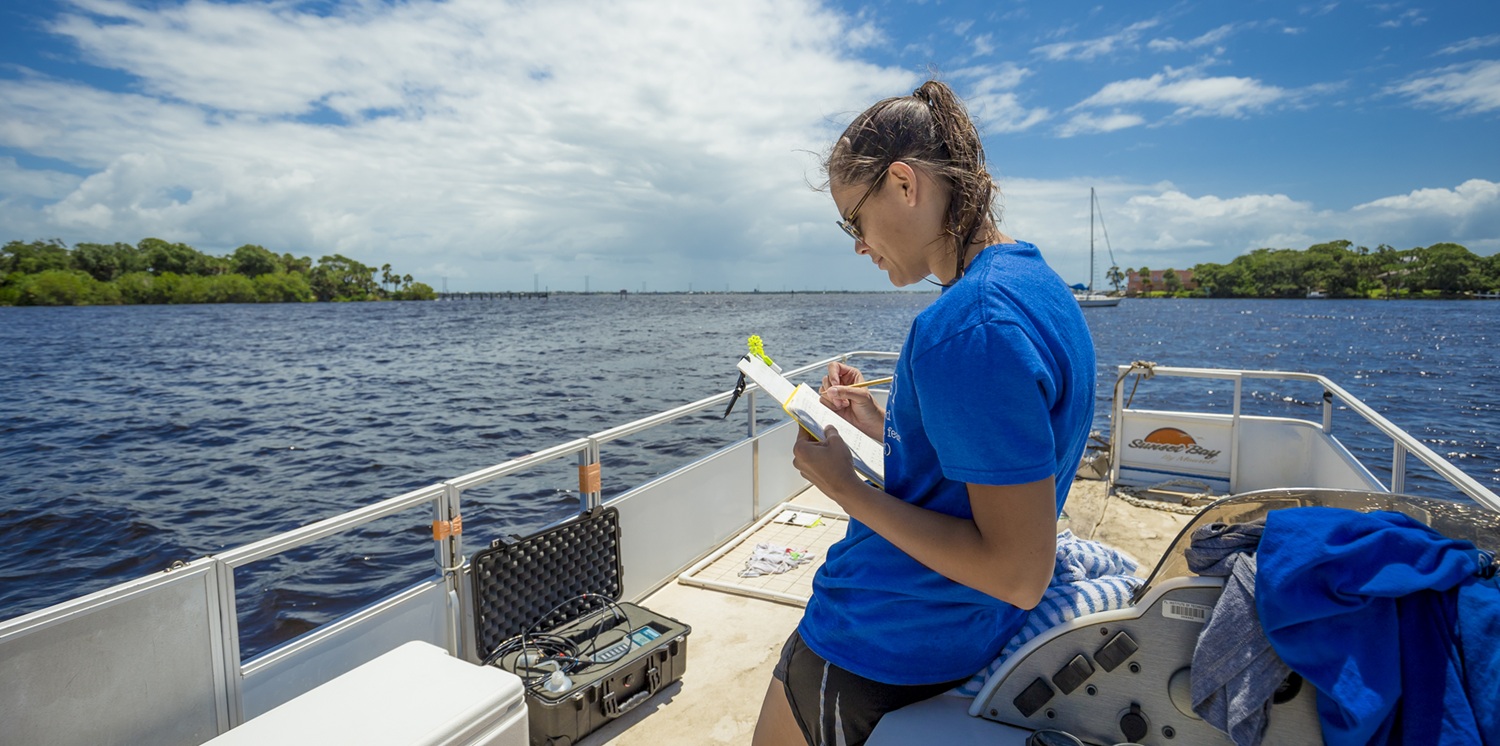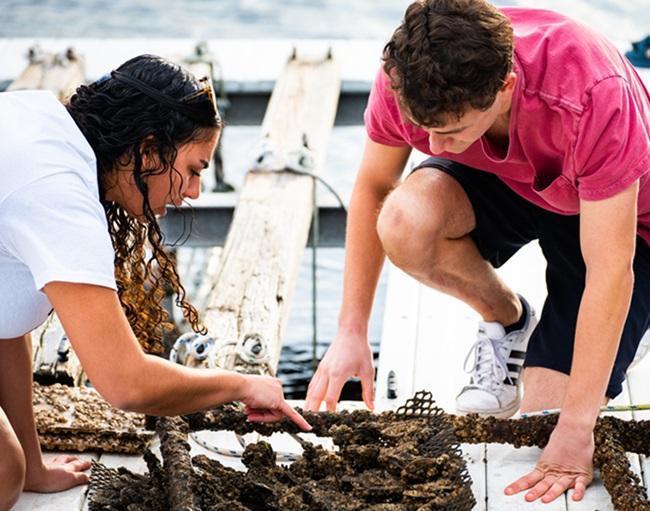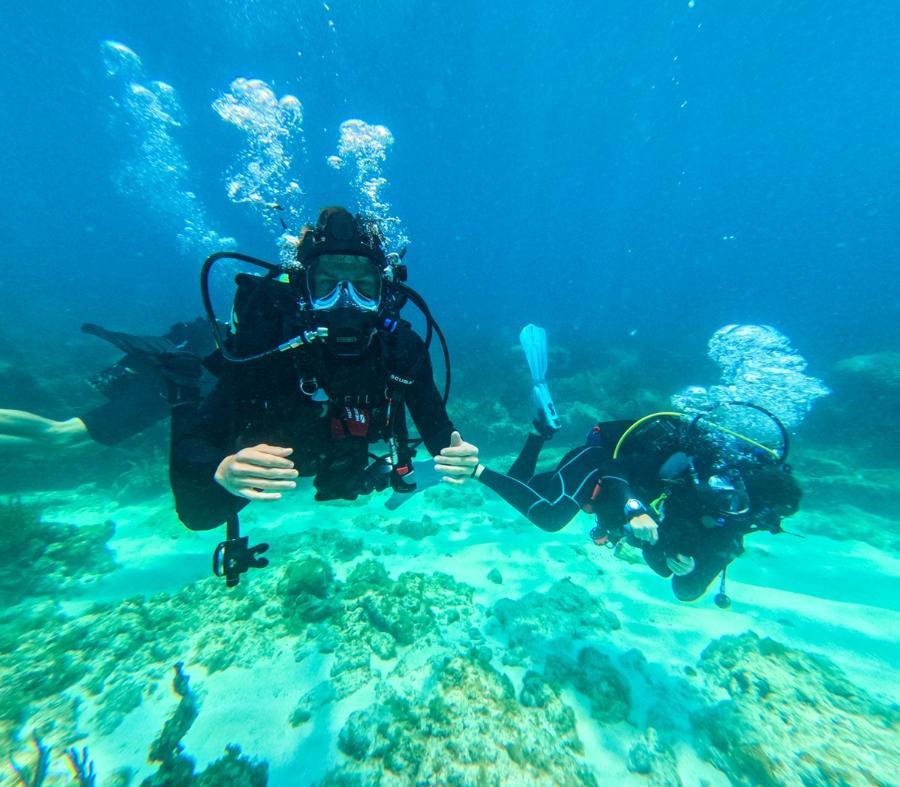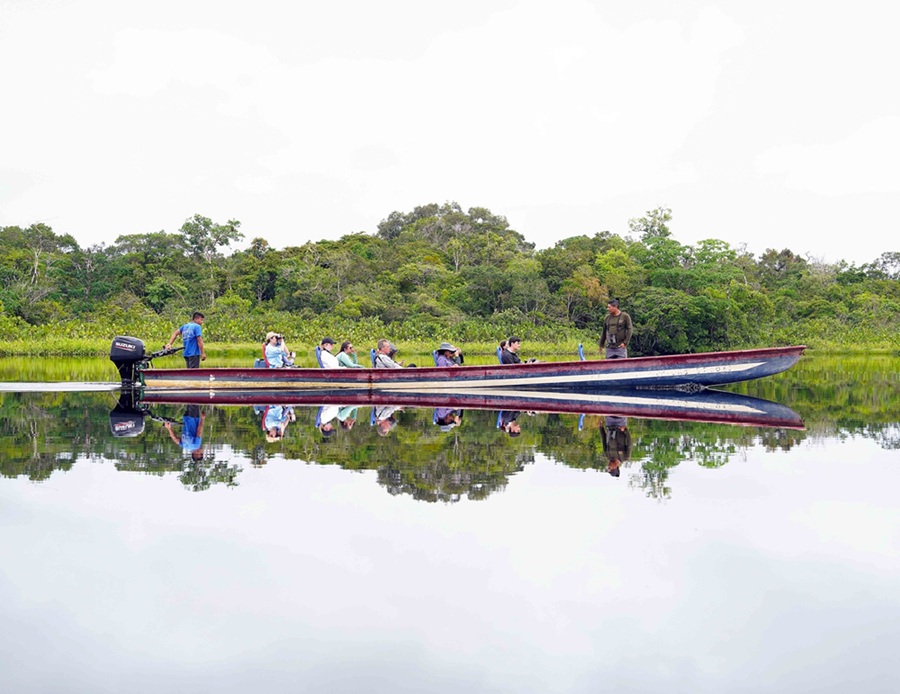Summer Field Courses
Summer field research courses offer environmental resource management students opportunities for immersive, hands-on experience in globally diverse ecosystems—from the Galapagos Islands and the Amazon to Puerto Rico’s coral reefs and the Pacific Northwest’s Salish Sea.
These courses blend classroom learning with real-world field methods, such as snorkeling, boat‑based surveys, wildlife monitoring and data collection, providing crucial training in research techniques, logistical planning and ecological analysis.
For environmental resource management students, this translates into stronger practical skills, deeper ecological insight and meaningful experience that supports career preparation and professional growth in marine and environmental science.
Image: Professor Mark Bush leads Florida Tech students in a summer field course on the Lagartococha River in the Ecuadorean Amazon. Photo credit: Rich Aronson

 Give to Florida Tech
Give to Florida Tech 